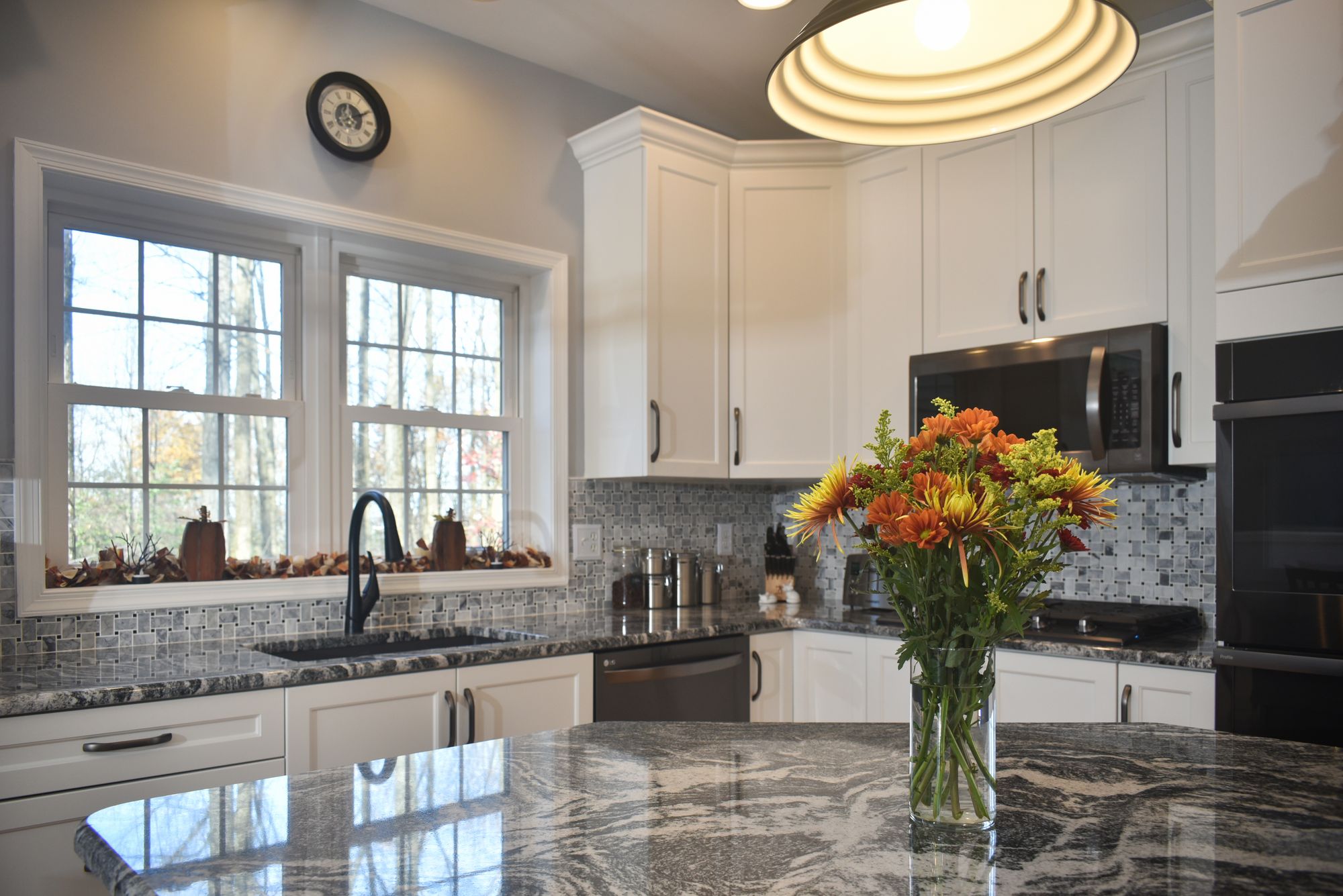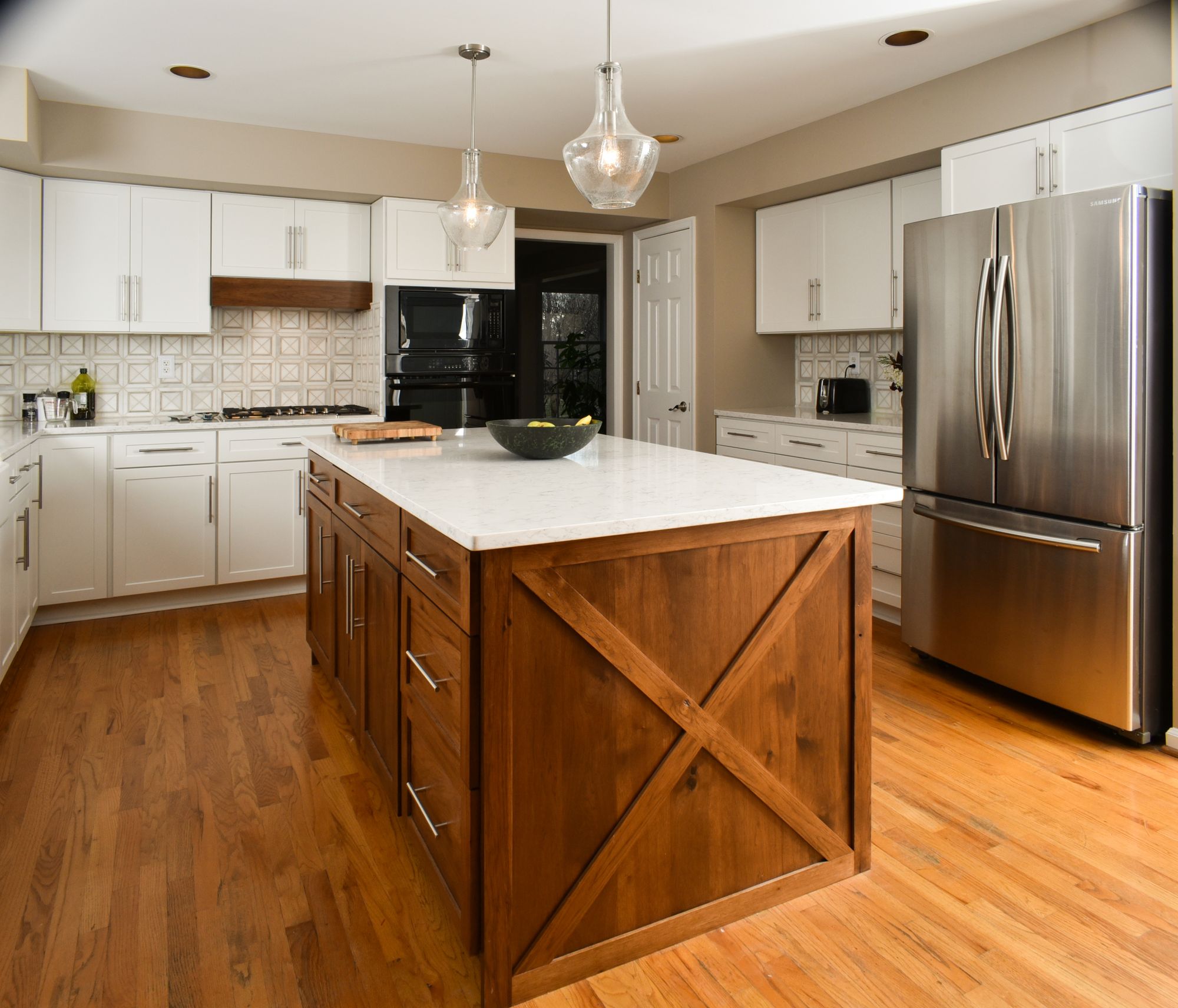In this article, we'll be discussing the differences between the two most popular choices for kitchen countertops: quartz and granite.
The Differences
Let's discuss the basics. Granite is a natural stone that is mined extracted from the earth in large pieces and cut into large slabs. It is then polished with a diamond sander to create the shiny finish. If you want a more detailed definition, Oxford Languages describes granite as a "a very hard, granular, crystalline, igneous rock consisting mainly of quartz, mica, and feldspar and often used as a building stone."

You'll see granite with different colors based off where it is from and what other minerals are integrated with the stone. In fact, granite is mined and quarried all over the world from North Carolina to China.
One of the major details you want to remember is that granite is porous and it absorbs chemicals. This means that if you forget to seal your granite every 6-12 months, things like wine, oil, or ketchup could sink into a lighter granite and stain it.
What about quartz? When it comes to quartz countertops, we are discussing a man-made material separate from the naturally occurring minerals like quartzite. Quartz countertops are manufactured in factories, and are a combination of many rocks, chemicals, and polymers thrown together.
This amalgamation is why you can get quartz countertops in so many different colors! The addition of polymers also seals the countertop (making it non-porous) and ensures that there can be no staining. That is why you will see quartz countertops being used in restaurants and medical facilities as the non-porous nature of quartz creates an anti-microbial protection.

Style & Design
Although granite needs sealing every 6-12 months, it has a lot of upsides. Granite is completely unique and natural. This means that your slab of granite will not be like your neighbors' slab of granite.
In comparison, because quartz is a combination of material and is manufactured, quartz is easily reproducible. What you see on a brand's website is what you will get. This definitely comes in handy when you have a larger kitchen and need multiple slabs to finish your countertops as the uniformity of the color will make an almost perfect match.
Pricing Dynamics
Why are some countertops more expensive than others? There are separate answers for both granite and quartz.
For granite, the prices depend on the supply of the selected granite throughout the entire world. For example, if a quarry that was producing a huge amount of reddish-black granite suddenly shuts down, the price of reddish-brown granite will increase globally. Yes, economics class is finally coming in handy as it is a classic case of supply and demand.
Quartz prices are far more dependent on the brand and the difficulty in making the selection of quartz. You will frequently see higher end manufacturers like Cambria using a white, more vibrant quartz whereas cheaper manufacturers will be using a duller quartz.
The inexpensive quartz products in the market tend to have lower quality ingredients such as lower quality bonding agents (polymers), fillers and less pure white quartz. And this is quite important because the polymers are what seals your countertops and ensures there will be no staining. The better the material in the quartz product, the more realistic the design will be, the harder the end product will be, and the better protected surface you will end up with.
Quartz prices also varies based on style. If a company has figured out how to get their quartz to look like marble, they can charge a premium. The next logical question is "why don't people just get marble?"
Marble is great for statues, but bad for kitchen countertops. Lighter marble stains very easily, and it is quite easy to chip or crack. Additionally, it is extremely expensive. If you want the look of a marble, it makes much more sense to go with a quartz product.
Takeaways
- Granite countertops are all-natural and completely unique, but need to be sealed once every 6-12 months to prevent staining
- Quartz countertops are factory-made and will never need sealing because they already contain stain-preventing polymers and are a non-porous material
- If you want a lighter color for your countertop, go with quartz!


